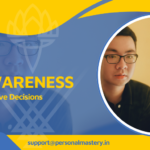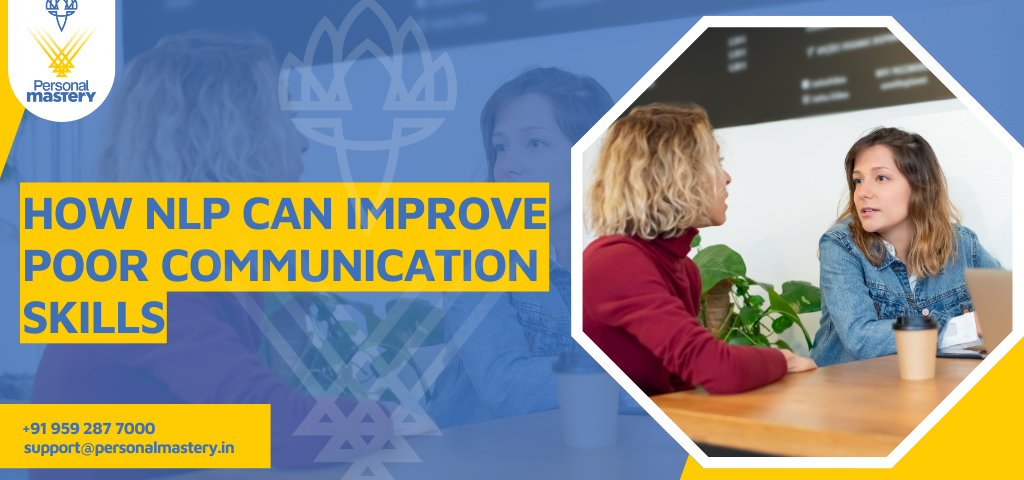
The Importance of Emotional Intelligence for Professional Growth
November 22, 2024
Lack of Self-Awareness: The Path to Impulsive Decisions
December 2, 2024Communication is among the most important skills in today’s rapidly changing world. That is, effective communication is important, be it in personal relationships, professional environments, or self-expression. Communication can take many forms: mother-to-child, husband-to-wife, boss-to-employee, and even among friends. But nowadays many persons are lacking the ability to communicate properly, hence experiencing misunderstandings over different issues, not-so-good feelings about themselves, and difficulty in establishing contact with people. Neuro-linguistic programming is one solution that can transform these problems and help communicate better by redesigning a person’s mind to improve verbal and nonverbal communication skills. In this overview, utilitarian and research-supported NLP techniques will be considered from the case study point of view to better understand how communication skills can be polished.
Understanding NLP and Communication
In simple terms, it is a powerful psychological way, a combination of language, cognitive-behavioral psychology, and subconscious reprogramming technologies that enhance individuals’ interactions with themselves and others. It is based on the dictum that thoughts, emotions, and language patterns affect behaviors and outputs. Therefore, by revising such patterns, NLP helps break down communication barriers and helps them express themselves more effectively.
Key NLP Techniques for Enhancing Communication Skills
- Building Rapport
Rapport building becomes one of the basic techniques of NLP. By modeling body language and tone of voice on each other with similar speech patterns that could ensure an environment of trust and thereby be conducive to effective communication. Rapport building does not only remove barriers but makes the connection that further facilitates the passage of messages with little chance of misinterpretation. - Empathic Listening
NLP promotes empathic listening as the kind of skill that parlays into meaningful dialogues. NLP puts great stock in active courtship of listening, which trains an empathic listener to focus on the speaker, perceive non-verbal cues, and provide a thoughtful response. Such improved listening abilities will enhance engagement while subside misunderstandings. Empathic listening is an absolutely critical skill for Improving poor communication. - Overcoming Limiting Beliefs
NLP training focuses on limiting beliefs which constrain communication. Such beliefs include, “There’s no way I could speak well” or “Nobody could listen to me.” NLP training techniques transform the self-doubt into affirmations directly and slowly build a sense of self-awareness with competence. - Emotional Intelligence and Self-Awareness
Effective communication involves more than simply speaking; it entails the understanding of one’s emotions and those of others. NLP builds emotional intelligence for self-awareness of emotional triggers and responses. This self-awareness encourages more considerate communication; prevents emotional flare-ups; and subsequently encourages empathy and understanding. - Goal Setting and Visualization
The other cardinal pillar of NLP is the ability to write clear goals coupled with an image of success. Strategic goal setting helps individuals overcome their communication hurdles, such as social feelings of anxiety or feeling nervous in public speaking situations. Negative imaging replaces positive imagery, and they could program their subconscious to feel comfortable while expressing themselves more naturally. - Effective Use of Language
NLP focuses primarily on language patterns and the influence of word choice in said communication. The practitioners learn to think in positive assertive terms to resonate with a listener and encourage open dialogue; for example, instead of making judgmental expressions, an NLP practitioner might express understanding and use empathetic expressions to encourage rapport.
Case Study: Reema’s Journey to Better Communication
To understand just how NLP works, I make a quick case study with the example of Reema, a 28-year-old marketing professional based in Mumbai. The struggle with Reema was with that of less confidence of communicating empathically—be it in one’s personal or professional life. Thus Reema might find communicating her ideas difficult, with frequent misunderstandings, which hampered her career and relationships
Reema chose to take up a Neuro-Linguistic Programming Practitioner course with Personal Mastery and learn several important NLP techniques:
- Identifying Limiting Beliefs: Reema discovered her core limiting belief was the fear of judgment. Through the different NLP exercises, she became aware that she had always pitched her ideas with the belief that people would not approve, and therefore, would remain in a hesitant zone during meetings.
- Practicing Empathic Listening: To fully participate in conversations without constant thought of her own responses, Reema learned empathic listening strategies. This helped her to build rapport among colleagues, thus improving the collaborative working environment.
- Visualization Techniques: Reema practiced goal-setting and visualization by envisioning herself as being confident and eloquent. Over a period of time, this inner rehearsal began to translate into more real-life interactions, wherein she became much more assertive in conversation.
After a few months, Reema noticed big changes. She now exudes confidence, has taken on a leadership role, and is creating real connections in the workplace and at home. Taking ownership of her mindset gave Reema a powerful reason to practice reframing, rapport renegotiation, and other characteristics of effective communication highlighted through NLP as being transformative for someone with unskillful communication styles.
Benefits of NLP for Communication Skills
NLP, through its techniques mentioned above, has to offer a lot to enhance poor communication skills:
- Improved Self-Confidence
NLP will help heal limiting beliefs and induce a positive self-image, thus dramatically enhancing self-confidence. This is very crucial, as self-confidence reflects in voice, tone, and body language. - Enhanced Emotional Intelligence
Because of NLP, people are more tuned in with their own and others’ emotions and can conduct sensitive dialogues with more empathy. This gives rise to stronger bonds and encourages improved dialogue. - Greater Self-Awareness
NLP training increases self-awareness, allowing people to recognize and adjust their emotional responses in communication. Thus, reactive or defensive behavior is prevented, making them appear calm and composed. - Better Goal Setting in Conversations
The approach of NLP in goal-setting orientation focuses people toward desired outcomes, thus aiding clearer and more purposeful conversations that introduce goal-setting into the communication process. This enables one to overcome the fear of the social situation- anxiety- and aid individuals to articulate their thoughts more clearly. - Stronger Rapport with Others
Using NLP to build rapport helps people to establish trust and make others feel good quickly. This is really useful in professional situations where rapport helps in cooperation and team synergy. - Conflict Resolution Skills
NLP teaches constructive language deeds that help avoid misunderstandings and solve conflicts. When one continues to work with solutions rather than putting the challenges in the limelight, this allows people to navigate tough talks without ado. - Adaptability in Various Communication Styles
NLP enables the identification of varying communication styles and allows you to adjust accordingly, smoothing out any communication. Regardless of whether one communicates with forthright direct communicators or one’s reserved self, NLP skills allow flexibility and adaptation to accommodate context.
Applying NLP for Long-Term Communication Success
Becoming inspired by Reema’s story, individuals can take the first step toward honing their communication skills by signing up for a comprehensive NLP Practitioner Course. Courses such as this one, offered by Personal Mastery, provide practical hands-on training, practical NLP techniques, and supervision by career mentors. The workshop aims to have participants learn the tools of emotional intelligence and strategic goal setting which they will bring back to create long-lasting change in both personal and professional domain interactions.
Conclusion:
NLP can be a bridging pathway to communicate properly.
NLP is a broad-based strategy for enhancing poor communication by pulling off both mental and behavioral aspects of communication. From effective rapport to changing limiting beliefs, NLP techniques render individuals extremely effective communicators who easily navigate through complex social interactions. Whether or not you want to learn for personal growth, be it for career advancement, investing in an NLP course will indeed go a long way in making one empowered to develop confidence and communication skills.
For the starters, NLP is more than a mere competence for those struggling with poor communication-it is a pathway to personal and professional mastery. Make a step toward effective communication with NLP-and see the difference in each of your conversations.
FAQs
- What is NLP and how does it help improve communication skills?
Neuro-Linguistic Programming (NLP) is a psychological approach that combines language, cognitive-behavioral techniques, and subconscious reprogramming to improve personal and professional communication. By altering thought patterns, NLP helps individuals enhance their verbal and non-verbal communication, build rapport, and increase emotional intelligence. It teaches techniques like active listening, subconscious reprogramming, and effective language use, which help overcome barriers like social anxiety, low confidence, and misunderstandings in communication. - Who can benefit from NLP to improve communication skills?
NLP is beneficial for anyone who wishes to improve their communication skills—whether it’s for personal development, professional growth, or improving interpersonal relationships. This includes professionals like managers, coaches, and educators, as well as individuals facing challenges like social anxiety, fear of public speaking, or difficulty expressing thoughts clearly. The NLP techniques are universal and adaptable to different personality types and communication styles, making it suitable for both beginners and seasoned communicators. - How long does it take to see improvements in communication with NLP?
The time it takes to see improvements in communication using NLP varies from person to person. However, many people experience significant changes within a few weeks or months of practicing NLP techniques. It depends on factors like the individual’s commitment to learning, the frequency of practice, and the depth of the NLP course. Techniques such as rapport-building and active listening can yield quick results, while subconscious reprogramming and limiting belief transformation may take longer to show lasting change. - Can NLP help with public speaking and reducing speech anxiety?
Yes, NLP is widely known for its effectiveness in reducing public speaking anxiety and helping individuals feel more confident during presentations. NLP techniques such as visualization, positive affirmations, and reframing negative thoughts can help individuals overcome nervousness, fear of judgment, and stage fright. Through mental rehearsal and confidence-building exercises, NLP equips individuals with the tools to perform calmly and clearly in front of an audience, allowing them to focus on the message rather than their fears. - How can I learn NLP to improve my communication skills?
To start learning NLP, you can enroll in an accredited NLP Practitioner Course that offers comprehensive training on effective communication techniques. Reputable courses, such as those offered by Personal Mastery, provide both online and in-person sessions led by experienced NLP trainers. These courses typically cover everything from basic NLP techniques like rapport-building to more advanced skills such as goal setting and subconscious reprogramming. Upon completion, you will receive an accredited certification, which empowers you to apply NLP methods confidently in your personal and professional life.


